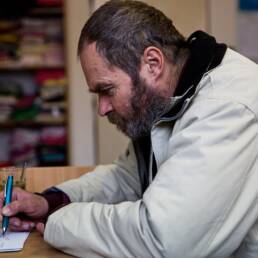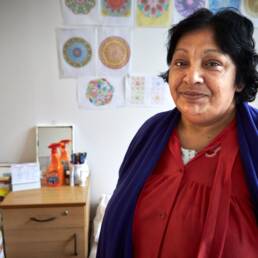Author
Nikita Sanaullah
Policy Officer on Social and Economic Inclusion
European Youth Forum
I’ll never forget the desperation I felt at 23. I had just completed a Masters degree on which I had worked so hard because I was promised that a degree was my ticket to a secure future. But it had been six months since I had graduated, and I could not find a job anywhere.
When I eventually did get an offer, it was for a three month contract where my paycheck barely covered the month. After that, I did one year of temp work through an agency, followed by two years of internships that paid below minimum wage. Eventually I got a job offer – but only for three months.
Thankfully, things have changed for me since then. But my story is not unique: it is a reality faced by many young people. Today 16% of young people in the EU are unemployed, more than double the overall unemployment rate. This is largely due to the fact that young people face unequal access to the labour market. Entry-level jobs are diminishing and fewer employers are willing to invest in the professional development of young workers. Instead apprenticeships, internships and unpaid work have become necessary pathways to employment. For those lucky enough to find paid work, precarious jobs like zero-hour contracts or on-demand work have become the norm. In fact 44% of young people in Europe are in temporary work. These types of contracts usually mean that young people cannot contribute to a pension scheme, nor access social protection. Thus they have no safety net, for now or for the future. Many young people in non-standard forms of work, like platform workers, are also finding that they are not entitled to basic workers’ rights like paid sick leave or annual leave. Young people’s income levels are equally bleak. Many countries have youth minimum wages, a ridiculous form of age-based discrimination, that deeply conflicts with the principle of equal pay for work of equal value. Is this the best the EU has to offer its youth?
The Youth Guarantee has been one solution to this problem, but too often the European Youth Forum’s Member Organisations are reporting that the quality of offers is poor, part of the same cycle of low wages and temporary work. Programmes are also failing to reach those who are farthest from the labour market. Part of the issue is that policy-makers too often see young people as a homogenous group, failing to understand that vulnerable young people may require more personalised support, catered to their specific needs. Can a young person who is homeless really prioritise finding a job without stable housing, for example?
Too often employment is seen as the silver bullet to social exclusion in Europe. Yet, while unemployment rates in Europe are decreasing, poverty and social exclusion is on the rise. In 2016, two million more people (118 million overall) were at risk of poverty or social exclusion than in 2008 when the financial crisis hit. Access to education for example is still a challenge for many young Europeans, despite education being a key indicator of life outcomes. Foreign-born students are twice as likely to leave school early. Children and youth with disabilities have seen their schools shut down because of austerity, and one in four Roma youth have never had any formal education. This is a social issue that must be tackled too if we want to improve young people’s access to the labour market. The European Pillar of Social Rights is a step in the right direction. It consists of a number of principles relevant for youth, such as the right to access social protection, and the right to a quality education. However when we look at the European Semester, which is suppose to promote the implementation of the Pillar, employment and economic policies still dominate the country specific recommendations issued to EU Member States.
Today’s labour market simply isn’t built to include youth. It is no wonder we are the group at highest risk of exclusion. There are many policies that can change this, but some key steps would be for the EU to ensure access to social protection for all workers, taking into consideration the kinds of work young people do, including internships and apprenticeships. We need more investment in entry-level job creation. We need a Directive for an adequate minimum income scheme to protect young people from falling into poverty. Furthermore, nothing can change without greater investment in youth in the EU budget and at national level.
If the labour market doesn’t allow young people access, then our policy-makers must change this. Political decisions have the power to make labour markets arenas where all young people can thrive. But this must happen now, because as Europe’s youth become poorer, they can no longer afford to be left behind.
About the author
Nikita Sanaullah is a Policy Officer on Social and Economic Inclusion at the European Youth Forum, where she has a special focus on the impact of new forms of work on youth. She began her career at London based social mobility charity, Making the Leap, where she assisted in the running of employability programmes for young people from disadvantaged backgrounds. Prior to joining the Youth Forum in January 2018, she worked for several years on EU advocacy in the aid sector, for the Norwegian Refugee Council and Save the Children International and has authored a report on the EU’s contributions to achieving the health MDGs. Nikita is a graduate of Development Studies from the University of Sussex and has a MA in Peacebuilding from the Humanitarianism and Conflict Response Institute in Manchester.












